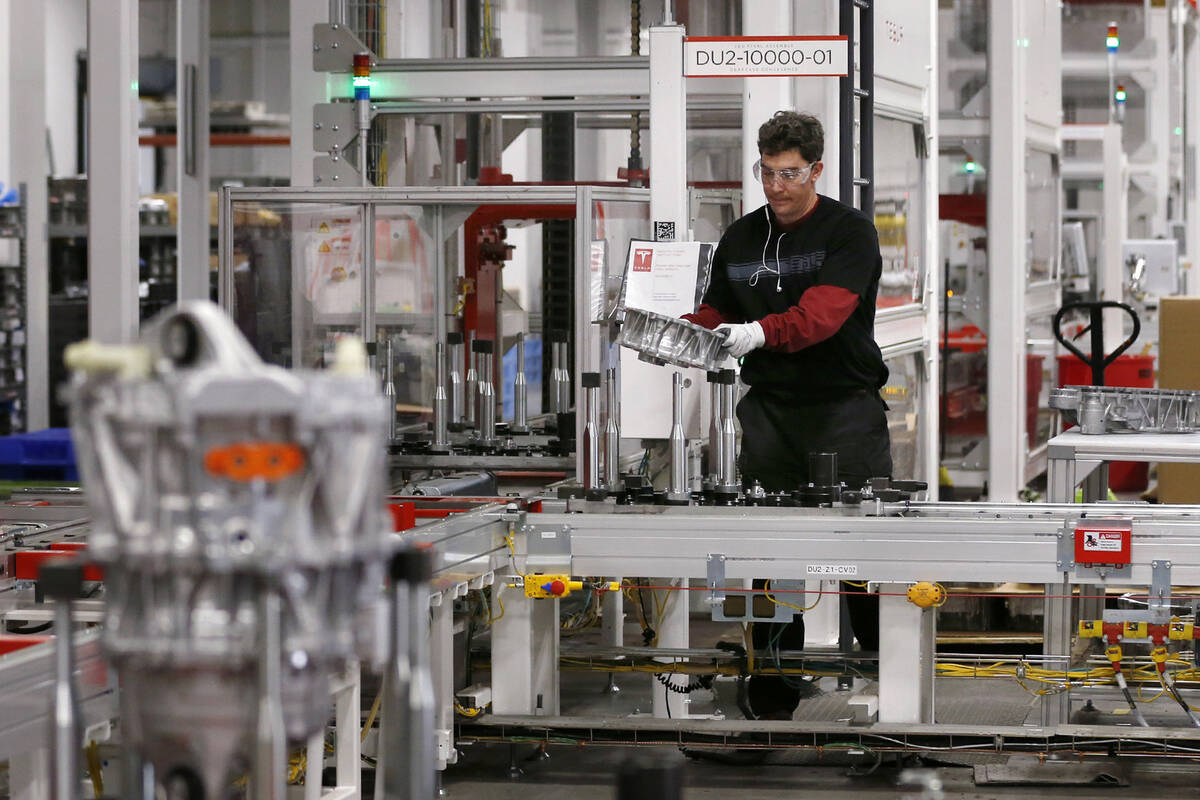EDITORIAL: Economic development deals need more transparency

Over the past decade, Nevada officials have showered hundreds of millions of dollars in tax breaks on scores of companies to attract them to the state. The most notable of these deals — a $1.4 billion package — led Tesla to build its battery factory outside of Reno.
Whether such handouts are preferable to simply creating a uniform tax and regulatory climate that encourages entrepreneurialism and economic growth is a matter of much debate. Defenders argue that the subsidies pay for themselves through job creation and are a necessary cost of economic development when other states are also dangling financial carrots. Critics respond that tax gifts distort the marketplace, encourage inefficiencies, allow public officials to play favorites and too often line the pockets of prosperous companies that don’t need them.
This contentious issue has been in the news recently, after Tesla announced in January that it would build a $3.6 billion battery and semi-truck manufacturing plant in Storey County. The facility will receive millions in federal “incentives” as well as additional tax consideration from the state, through the Governor’s Office of Economic Development. The latter’s board is expected to vote March 2 on the package of tax breaks.
Yet less than two weeks before the vote, Nevada taxpayers — and lawmakers — remain in the dark about how much state officials believe is appropriate to provide the electric car company. At a legislative committee meeting last week, the Nevada Current reported, lawmakers sought to determine the extent of the subsidies. They came up empty when Tom Burns, who runs the economic development office, said he was unable to divulge the details because of a nondisclosure agreement.
“It is time for the Legislature to re-examine the delegation of authority for tax abatements,” state Sen. Dina Neal, who chairs the Revenue and Economic Development Committee, said in a statement. She added, “Nondisclosure agreements shouldn’t protect large corporations and prevent the Legislature and the public from understanding the full impact of taxes that would be abated to make an economic development deal.”
Mr. Burns argues that he needs the freedom to more nimbly react to competitive pressures from other states. But the convenience of Mr. Burns and his office shouldn’t trump transparency. State lawmakers, in this instance, have indeed ceded too much power to an executive branch panel, perhaps unwittingly highlighting the dangers of an unchecked administrative state.
The intricacies of the Tesla deal will be revealed just days before the GOED board vote. That leaves little time for a thorough examination of the details. Sen. Neal proposes legislation that, “at a minimum,” will allow the public “significantly more time … to review these proposals.” That would be a very good idea.